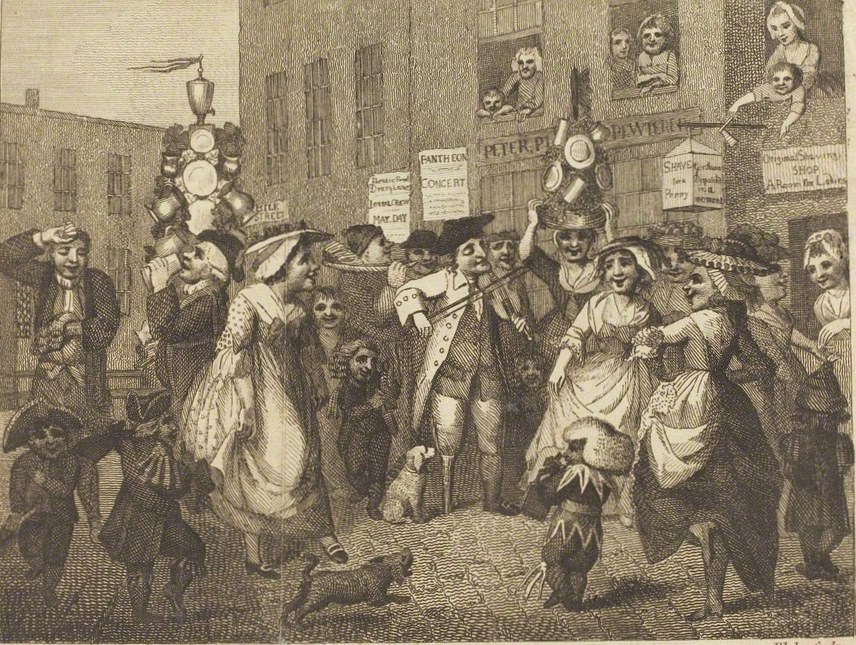To win an election against an incumbent who plays fast and loose with the rules but who also commands significant popular support, is it better to campaign through confrontation or mirroring?
In Venezuela, this is a key dilemma facing the opposition to President Chávez. The victory of Henrique Capriles Radonski, the 39 year-old governor of the large Miranda state and member of the centrist party Primero Justicia (Justice First), in Sunday’s primary elections to be the Mesa de Unidad (Unity Committee) Presidential candidate gives us a strong indication which strategy will be used to try and unseat President Hugo Chávez on October 7, 2012.
In the next seven months of campaigning, the Capriles candidacy is likely to be more about mirroring Hugo Chávez’s governing style than confronting his record. Among the opposition candidates, Capriles polled the best against Chávez but to win, he will need to cross over and gain credibility with independent voters. This may well require a strategy of appropriating some of Chávez’s policies, by, for example, arguing that they represent good ideas in need of different execution to guarantee fairer and efficient outcomes.
Meanwhile, the Chávez candidacy is likely to be about confronting Capriles as a representative of a disloyal opposition and disclaiming there are any real similarities between the ‘people’s President’ and this young politician from a well heeled background. Chávez needs to mobilize his ‘light’ supporters, a heterogeneous group that has not always turned out for him when their votes were needed—abstention helps explain the defeats to Chávez’s constitutional reform in 2007 and to some Chavista congressional and gubernatorial candidates. To rally the Chavista ‘lights,’ Chávez will claim to be the sole guarantor of economic and political stability.
Should they play out this way, these strategies indicate a competition that favors Chávez since, after all, he has to play himself while Capriles has to be himself and part Chávez.
Nevertheless, it is not totally far-fetched to envision Capriles pulling off this very complicated role as the politician that unites a coalition of the hard-core opposition to Chávez (about 35%) and the ordinary actors who see a government trying to help them but failing to inspire loyalty. There is a precedent for forging this coalition, but it took place in a different setting and on a different scale.
Uniting his base with disaffected Chavistas was supposedly the playbook Capriles used in 2008 when he ran for governor in Miranda and defeated a powerful Chavista politician. But, it is important to note, the powerful politician Capriles defeated was perceived to be an incompetent, corrupt administrator while Chávez does not have this reputation.
What Chávez has, however, is a cloud of questions about his health hanging over him. Though he claims to be cured of a cancerous tumor removed from his mid-section last year, rumors swirl that he is not fully recovered. To try and confirm he had returned to full capacity, Chávez gave a nine and a half hour-long speech for Venezuela’s equivalent to the state of union. Nevertheless, his physical appearance is not that of a healthy man, whether this comes from the side effects of steroids or the natural wear and tear that chemotherapy can cause.
It is not clear how questions about Chávez’s health will affect his ability to mobilize his ‘light’ supporters. ‘Los lights’ are generally considered even less enthusiastic about politicians in the President’s party. If they sensed Chávez was in real danger of falling back into remission, then they could decide Capriles is the better man for the job than any Chávez deputy.
The opposition is definitely in its best position ever for fighting Chávez through the ballot. The rebirth of political parties as the main channels of anti-Chávez sentiment and of alternative policy proposals, and the emergence of a new generation of younger politicians that Capriles now heads, has helped the opposition grow democratic legs after a period between 2002-2005 when it seemed addicted to cynical tactics, such as sanctioning a coup that backfired.
The higher than expected turnout in the primary elections (about 15% of the electorate turned out to vote, while 10% would have been satisfactory) won by Capriles is a sign enthusiasm about the opposition is the strongest it has ever been. Yet, there may still be problems ahead for Capriles in terms of locking up infrastructural support from the organizations of his erstwhile competitors. Like the way conservatives are concerned Mitt Romney may really be the center-right mirror of Barack Obama, radical members of the opposition may not support Capriles mirroring Chávez since they want a radical break from the status quo, not a protracted transition.
Capriles will be pressured to confront when his instincts, which have done him quite well so far, will be to mirror through projecting a moderate image. If Capriles can build a candidacy that mirrors Chávez through an authentically alternative image, then he will have performed a miraculous acting job. More importantly, it could win him the part he craves the most, President.

Reply